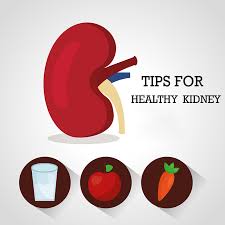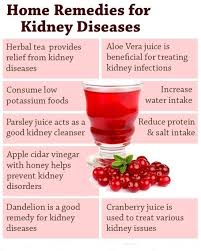
Tips to Keep Your Kidneys Healthy

Exercise Regularly
If you are healthy, getting your exercise is a good idea because, like healthy eating habits, regular physical activity can stave off weight gain and high blood pressure. But do be mindful of how much exercise you do, especially if you're not conditioned. Overexerting yourself when you're not fit and healthy can put a strain on your kidneys, especially if you exercise so much that you cause excessive breakdown of muscle tissue.
Eat Healthy Foods
Your diet impacts your entire body, and eating healthy foods can help prevent high blood sugar, high blood pressure, and other conditions associated with kidney disease. Eat plenty of fruits and vegetables, and reduce your salt intake by eating less processed and takeaway foods. A balanced diet is the most kidney-friendly.
Control Blood Pressure and Blood Sugar Levels
High blood pressure and diabetes are the two leading causes of kidney disease. The kidney is a "vascular organ, meaning it contains many blood vessels. Therefore, diseases that damage the blood vessels, including high blood pressure and diabetes, can damage the kidneys. Even "slightly" high blood pressure (pre-hypertension) and elevated blood sugar levels, commonly referred to as "pre-diabetes," can damage the kidneys. Don't let the "PRE" prevent you from taking them seriously. Manage these conditions to protect your kidneys.
Maintain Healthy Weight
Maintaining a healthy weight has important implications for your kidneys. Being overweight means that the kidneys have to work harder to filter out toxins and to meet the metabolic demands of the increased body mass. Obesity also increases your chance of developing diabetes and high blood pressure, two major risk factors for kidney disease. Weight loss can help reduce your risk.
Avoid Pain Relievers
Avoid pain relievers, especially non-steroidal anti-inflammatory drugs (NSAIDs), such as aspirin, ibuprofen (Advil, Motrin, Nuprin), naproxen (Aleve), and acetaminophen (Tylenol). Products like these are very hard on the kidneys. Even worse, researchers have found that these drugs increase the risk of developing kidney cancer.
Stay Hydrated
Hydrate yourself with enough fluids enables kidneys to evacuate sodium, urea and toxins from the body and, thereby, lowering the risk of developing chronic kidney disease. Drink the recommended eight glasses of water a day to encourage healthy kidneys.
Eat Less Salt
Eating less salt will help you control high blood pressure. Most of the salt in your diet comes from processed foods. Avoid salty, processed foods; try cooking some of our low-salt recipes at home.
Quit Smoking
Smoking can damage blood vessels, which decreases the flow of blood in the kidneys. When the kidneys don't have adequate blood flow, they can't function at optimal levels. Smoking also increases the risk of high blood pressure as well as the risk of kidney cancer.
Limit Alcohol Intake
It is also important to limit your alcohol intake to a maximum of two standard drinks per day for men and one for women. Excess consumption of alcohol can contribute to high blood pressure and that conditions associated with kidney disease.


